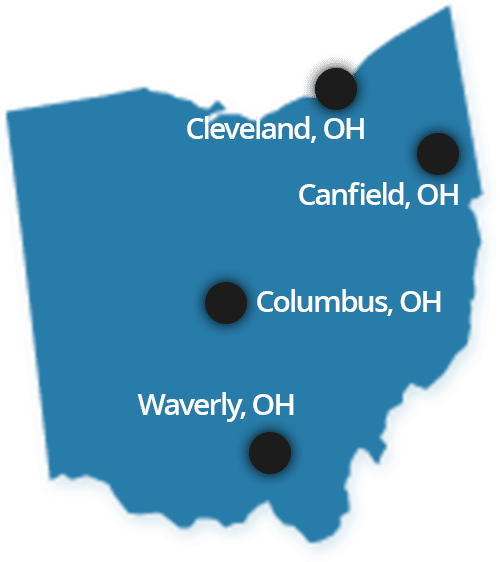On the surface, a commercial trucking collision may seem very much like any other automobile crash. But a crash involving a big rig, tanker truck, or other large commercial vehicle is often more serious than a collision between two passenger vehicles, for several reasons.
Truck accidents are often high speed
Because a commercial motor vehicle is so much larger and heavier than a car, light truck, or motorcycle, it is common for the occupants of the smaller vehicle to suffer much more serious injuries. In addition, because large, heavy vehicles have much higher momentum, it is more difficult to slow them down and stop them. Therefore, these vehicles often collide at a higher rate of speed than a smaller vehicle that took this same action to avoid the collision might have.
According to the Insurance Institute for Highway Safety (IIHS), 68% of those killed in crashes involving large trucks in the most recently reported year were occupants of passenger vehicles such as cars, vans, pickup trucks, and SUVs. Another 14% were motorcyclists, bicyclists, and pedestrians.
However, the seriousness of the injuries likely to be sustained in a commercial trucking collision is not the only difference. There are also significant complications associated with the pursuit of a commercial trucking accident claim.
That’s why it’s especially important for victims of commercial trucking collisions and those who have lost a loved one to a fatal truck accident to choose a personal injury attorney carefully. Not every personal injury firm is equipped to manage the complexity of a commercial motor vehicle collision case. The experienced personal injury attorneys at Plevin & Gallucci have the knowledge, resources, and network necessary to provide effective representation in a commercial truck collision case.
Why Do Commercial Truck Collisions Happen?
There are many possible causes of commercial truck crashes. According to the Federal Motor Carrier Safety Administration’s (FMCSA’s) Large Truck Crash Causation Study, 87% of commercial trucking crashes occur due to some failing on the part of the driver. Though this study is several years old, it remains the most comprehensive data available regarding the causes of large truck collisions.
Truck driver failures are similar to those responsible for many passenger vehicle crashes, including inattention, speeding, distraction, overcorrection, falling asleep, substance impairment, and following too closely.
10% of the crashes studied were attributed to a problem with the vehicle, such as defective or poorly maintained equipment. Just 3% were due to environmental factors–in other words, to factors that were outside the control of the owner and/or operator of the vehicle.
What Makes Commercial Truck Collision Cases Different?
Complex Liability Issues
In most car collision cases, the person most likely to be legally responsible for the crash is immediately identifiable. Although there may be some negligence on the part of both parties to the crash, or there may be a vehicle owner or employer in the mix, the analysis is typically pretty straightforward for an experienced personal injury attorney. In a commercial trucking case, though, determining liability may be more complicated.
For example, driver negligence may mean the driver himself is liable, if he or she is an independent owner-operator. But, if he or she is an employee, it may be the trucking company that is legally responsible for negligence. And even in an owner-operator situation, the company might be liable for negligence in selecting the contractor or in some other way negligently contributing to the driver’s actions.
In some commercial trucking cases, that’s only the beginning. If the collision was caused by an equipment failure, there may be a product liability issue or one of faulty maintenance. If there’s a maintenance issue, it will be necessary to determine who was responsible for maintenance of the vehicle and what standards and inspection processes were in place. Improper loading may also contribute to truck accidents, and the vehicle may have been loaded by the driver, an employee of the trucking company, or an employee of the shipper.
A Web of State and Federal Laws and Regulations
Most traffic collision cases are governed by state law, but in the case of a commercial trucking accident, there may be federal regulations in play as well. For example, the U.S. Department of Transportation (DOT) sets limits on the number of hours a truck driver may operate the vehicle and ignoring hours-in-service restrictions may constitute negligence. But making that assessment requires not only an understanding of the relevant federal regulations, but also of the potential liability on the part of trucking companies that push drivers to exceed their allotted hours.
That’s just one example of how the standard legal knowledge required to pursue a straightforward car collision claim may not suffice for a more complex commercial motor vehicle case.
Difficulty in Gathering and Evaluating Evidence
In a commercial motor vehicle case, the owner of the vehicle may be located out of state and physical evidence may be relocated to an out-of-state facility quickly. Similarly, because a commercial operation wants to keep its vehicles in service and making money, repairs tend to happen quickly. Whether intentionally or in an effort to efficiently get vehicles back on the road, important evidence can be lost without fast action by a seasoned commercial truck accident lawyer.
When evidence is collected, specialized experts may be required to review and assess that evidence. So it is important to work with a firm that has both the network and the resources required to bring in highly qualified experts.
Talk to an Ohio Commercial Truck Accident Lawyer
The experienced motor vehicle injury lawyers at Plevin & Gallucci have what it takes to effectively, aggressively pursue a commercial trucking crash claim on your behalf. If you have been injured in a truck collision or have lost a loved one in a commercial motor vehicle crash, schedule a free consultation to learn more about how we can help. Just call 855-4PLEVIN or fill out the contact form to get started.

